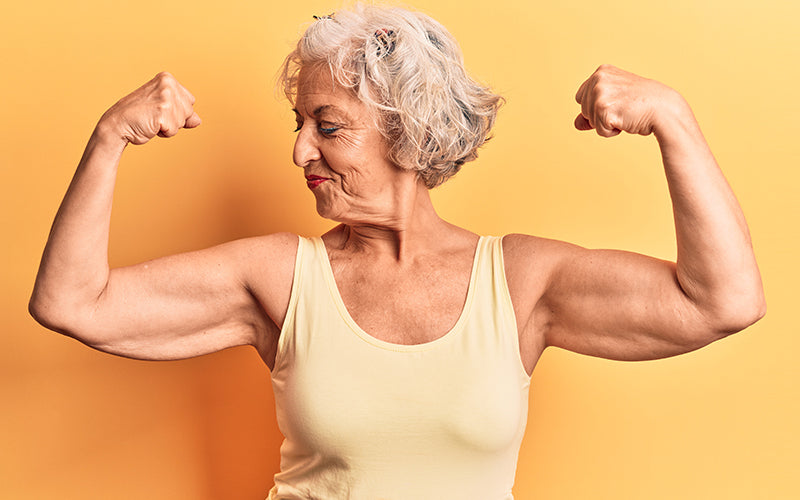Do you find yourself getting overwhelmed by the idea of going to a gym and working out because of fatigue and lack of experience? MaxiClimber exercise improves your cardio and heart.
When you skip your workout, you’re doing more harm than you realize. It’s not just your appearance that suffers; it’s also your cardiovascular health, especially your heart.
Let’s take a closer look at the benefits of regular physical exercise and how it can improve your cardiovascular and heart health.
MaxiClimber Exercise: Improves Your Cardio and Heart - Lowers Blood Pressure

One of the most well-documented benefits of physical exercise is the decrease in blood pressure and hypertension.
High blood pressure refers to the amount of stress being placed on your arterial walls. Those with high blood pressure have an increased risk for more serious complications such as a heart attack.
Countless studies have demonstrated a strong correlation between exercise and low blood pressure. For those subjects who had high blood pressure upon entering the study, exercise helped to dramatically reduce the blood pressure, helping many lessen or eliminate their need for medication altogether.
MaxiClimber Exercise: Improves Your Cardio and Heart - Healthy Cholesterol Levels

Just like high blood pressure, high cholesterol levels tend to be associated with an increased risk of cardiovascular complications and disease.
High levels of bad cholesterol, better known as low-density lipoproteins (LDL), can cause fatty deposits to form in the blood. The result is an increased risk of blockage and a subsequent cardiovascular episode such as a heart attack.
Exercise has consistently demonstrated its ability to lower bad cholesterol (LDL) level while raising good cholesterol, high-density lipoproteins (HDL). It also improves myocardial perfusion or the ability of the heart to efficiently pump blood throughout the body.
MaxiClimber Exercise: Strengthens Your Heart

Most people understand how exercise can improve your physical health because they see the benefits. Whether weight loss or muscle building, these results are able to be measured. But did you know that exercise also helps to strengthen the most important muscle in your body?
Studies show that resistance training with cardiovascular exercise helps to strengthen your heart, improving its ability to pump oxygen-rich blood throughout the body.
Supports Weight Management

The excess adipose (fatty) tissue that accumulates when you gain weight is taxing on your cardiovascular system.
Studies show that overweight people are twice as likely to develop cardiovascular complications such as high blood pressure. Obese individuals are ten times more likely to develop cardiovascular diseases.
Daily physical exercise is a natural and proven way to promote a healthy weight. While nutrition is also important, some studies believe that a program of daily physical exercise is the bigger factor for promoting weight management.
A combination of resistance training and aerobic exercise is considered ideal for weight loss and management. It is this specific combination that allows you to enter a caloric deficit, which is when you burn more calories than you consume. This is the foundation of weight loss.
Reduces Stress

When people get stressed out, they’re often greeted by a wave of adrenal and cortisol, two important hormones that are best known as the fight-or-flight hormones.
While these hormones are important for fast-thinking situations, they are unnecessarily activated during our day-to-day routines. Rush-hour traffic, work overwhelm, and family drama can easily trigger a flood of these hormones.
Chronic release of these hormones creates a catabolic environment. In other words, these hormones start to do damage to your body.
Stress has been shown to contribute to a number of cardiovascular diseases, especially heart disease. Chronic stress also leads to an increase in risky behaviors such as overeating, drinking, and smoking.
A daily program of physical exercise releases the feel-good hormones, endorphins and serotonin. Unlike their catabolic counterparts, these hormones combat stress by improving mood and overall wellbeing.
MaxiClimber Exercise: Improves Your Cardio Workouts at Home

If you don’t have much experience with fitness, you might be nervous about getting started. But with the MaxiClimber, you don’t have to be.
This beginner-friendly and scientifically proven workout machine combines resistance training and aerobic exercise in one simple motion.
Studies show that the MaxiClimber is more effective at burning calories and activating major muscle groups than traditional cardio and weight workouts.
MaxiClimber Exercise for Your Heart and Cardio Health

The benefits of exercise aren’t just skin deep. A seemingly unending supply of scientific literature has shown the necessity of physical exercise in order to support cardiovascular and heart health.
Combining resistance training with aerobic exercise can help you look and feel great. But you don’t need to go to the gym to perform a complicated fitness program. The MaxiClimber makes working out easy, fun, and safe. Best of all, it’s proven to provide an effective workout in a fraction of the time.
Do more for your heart with the MaxiClimber.
References
- Diaz KM, Shimbo D. Physical activity and the prevention of hypertension. Curr Hypertens Rep. 2013;15(6):659-668. doi:10.1007/s11906-013-0386-8.
- Pinckard K, Baskin KK, Stanford KI. Effects of Exercise to Improve Cardiovascular Health. Front Cardiovasc Med. 2019;6:69. Published 2019 Jun 4. doi:10.3389/fcvm.2019.00069.
- Nystoriak MA, Bhatnagar A. Cardiovascular Effects and Benefits of Exercise. Front Cardiovasc Med. 2018;5:135. Published 2018 Sep 28. doi:10.3389/fcvm.2018.00135
- Cox CE. Role of Physical Activity for Weight Loss and Weight Maintenance. Diabetes Spectr. 2017;30(3):157-160. doi:10.2337/ds17-0013.
- Dimsdale JE. Psychological stress and cardiovascular disease. J Am Coll Cardiol. 2008;51(13):1237-1246. doi:10.1016/j.jacc.2007.12.024.
- Girandola, Bob, and Ed Gaut. “The Effect of the Maxi-Climber Exercise Device on Inner Thigh Muscle Activity.” University of Southern California, 2012.
- Girandola, Bob, and Ed Gaut. “Maxi Climber Workout VS. Treadmill Workout and Stationary Bicycle Workout.” University of Southern California, 2012.













Share: